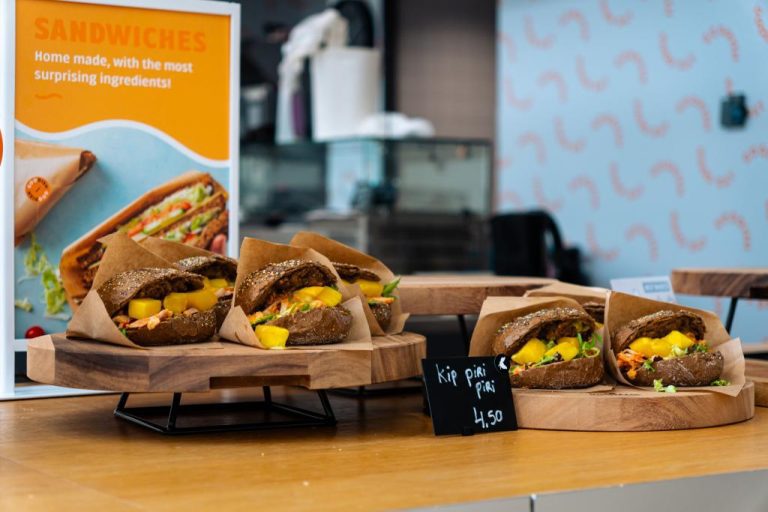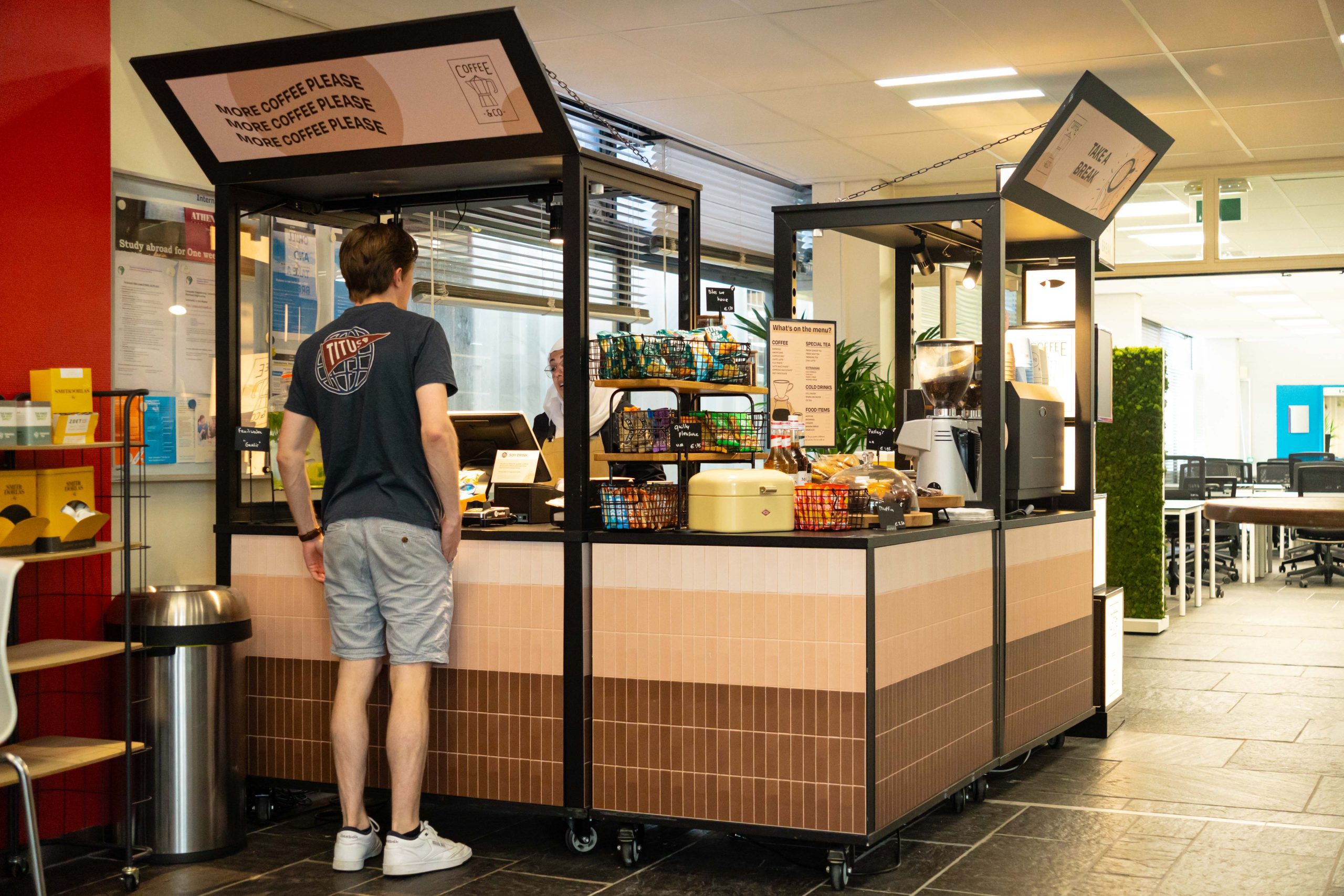From Monday, nearly all the catering spots on campus will be open again and are now being managed by Appèl, the new catering company. What are the plans for TU Delft?
The new coffee corner at the Faculty of Electrical Engineering, Mathematics and Computer Science. (Photo: Thijs van Reeuwijk)
Vegetarian chicken piri piri sandwiches, pulled jackfruit wraps, and vegan croissants. The students and staff members returning to campus after the summer holidays will have to get used to this kind of food. The previous catering company, Cirfood, has left and, since 17 July, Appèl has been responsible for the food and drink locations at TU Delft. After thorough renovation, almost all the locations were open again on Monday 28 August. Only the coffee corner at Architecture and the Built Environment will still be closed for another week.
Much has remained the same, says Evy de Wilde, the Appèl concept designer. She was one of the people at the birth of the catering concept that was specially designed for TU Delft. “You can still get hot meals at the places where these were always available. And you can still get a coffee at the places where you always got coffee.”
But more of the hot meals, bread rolls and salads are now vegetarian or even vegan. Cappuccinos are now made with soy, oat or almond milk. Cows’ milk is available, but costs EUR 0.15 extra. Deep fried snacks are also still available, but the emphasis is on healthy foods.
The ‘experience’
To make everything as sustainable as possible, Appèl is working with more sustainable suppliers such as Sunt, that makes banana bread from ‘saved’ bananas, and De Clique that brings Appèl’s coffee grounds – which are an excellent source of compost – to an oyster mushroom grower in Rotterdam. For Appèl, says De Wilde, it is about the ‘experience’. In the five to nine years of its contract with TU Delft, this needs to align more and more with the campus and everyone on it.
For the catering company – that has worked at the University of Twente since 2018 and TU Eindhoven since 2020 – it is new to work as sustainably as it is doing at TU Delft. It was also one of the most important considerations in the tender. The choice on offer must also be healthy, varied, and needs ‘to meet the needs of the user’ in ‘terms of both quality and cost’.
 Vegetarian chicken piri piri bread rolls at one of the Appèl locations on campus. (Photo: Thijs van Reeuwijk)
Vegetarian chicken piri piri bread rolls at one of the Appèl locations on campus. (Photo: Thijs van Reeuwijk)
EAT Lancet
TU Delft based its requirements in the tender largely on the EAT Lancet diet that a group of scientists published in the scientific journal The Lancet in 2019. This diet should allow 10 billion people in the world to be fed sustainably and healthily.
In practice this means much more vegetarian/vegan options than before without cheese, yoghurt and meat disappearing completely from the menu. De Wilde says that “We do not want to impose anything, only show that it is possible.” The Echo academic building and Ketelhuis, the Architecture Built Environment restaurant, are completely vegetarian, as they previously were. This too is TU Delft’s preference. TU Delft is requesting the foodtrucks in the Mekelpark and the eateries in the Pulse academic building, that also fall under the new contract with Appèl, to ‘join in in becoming more sustainable’.
Prices
Sustainability is the overriding aspect in Appèl’s kitchens. Apart from that the cooks prepare just about everything fresh from scratch. You can imagine that this will affect the prices. At the time of the interview, Appèl could not say much about the prices of the new selection. Delta will cover this in a follow-up article.
But De Wilde does say that there will be a ‘best basic’ option in every product category, such as an affordable soup or a cheap bread roll. And every last Thursday of the month Appèl will serve the ‘super budget deal’ consisting of soup and a filled bread roll for EUR 2.95. De Wilde expects that ‘this will go down well’.



Comments are closed.